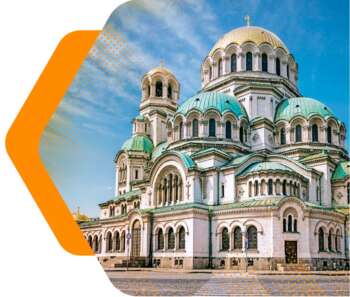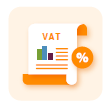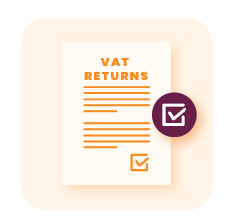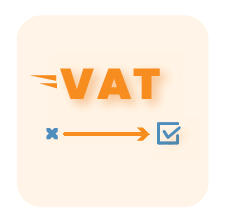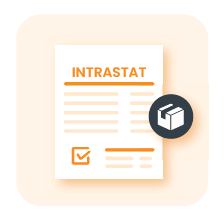E-Commerce & B2C Services in Bulgaria
Article 2 of the Bulgarian VAT law stipulates that services are subject to VAT. Article 8 of the Bulgarian VAT Law characterizes services as anything of value that does not qualify as a good, money, or foreign currency.
Under Bulgarian law, any act of service is deemed a supply of services.
Read more about B2C services & E-Commerce in Bulgaria in our comprehensive guide.
Selling in Bulgaria?
B2C services in Bulgaria
Under Article 2 of the Bulgarian VAT law supplies of services are subject to VAT.
Article 8 of the Bulgarian VAT Law defines services as everything that has a value, and it is not considered a good as well as money or foreign currency. Any act of service is considered a supply of services under Bulgarian law.
Illustrations of services include:
- The sale or transfer of rights pertaining to intangible property.
- Physical and intellectual types of labor, such as treatment, or construction of an object using raw materials.
- The act of service, such as repairs and upgrades of a leased asset performed by the user.
- The provision of services for private use by a taxable individual, owner, factory and office workers, or third parties, which involves the utilization of goods involved in production, where the credit for input tax has been wholly or partially deducted.
Bulgarian rules concerning the place of supply for services draw a line between business-to-business (B2B) and business-to-consumer (B2C) provisions.
- In the case of a B2B supply of services, the service’s place of supply is generally the location where the recipient is established and conducts their economic activity. On the other hand, for a B2C supply of services, the place of supply for the service is typically where the supplier has set up its economic activity.
- If B2B services are provided to a fixed business location distinct from the recipient’s economic establishment location, the supply place is where this fixed place of business is situated.
- If B2C services are rendered from a fixed business location different from the supplier’s economic establishment place, the place of supply is where that fixed business location is.
Digital services
A digital product refers to any item or service in an electronic format that is stored, transferred, and utilized. These can be acquired by a customer through internet downloads, emails, or website access. If you wish to market your digital goods in any European Union member state, including Bulgaria, you must first register with the One-Stop Shop (OSS).
The VAT One Stop Shop (OSS) is a voluntary system enabling VAT accounting in one EU member state, particularly beneficial if you supply cross-border digital services such as website hosting, software supply, database access, app or music downloads, online gaming, distance teaching, or non-established person’s accommodation services, and admissions to various cultural, artistic, sports, scientific, educational, and entertainment events, fairs, and exhibitions, to non-taxable individuals.
OSS eradicates the need to register with the tax authorities of each EU country where you make sales. Instead, it allows you to register for VAT, file VAT returns, and make VAT payments all in one place through the OSS structure. It is important to note that the OSS scheme rules should apply to all your customers in all EU countries where you offer your services or products.
At present, two schemes operate under OSS:
- The Union scheme: Available to businesses established in the EU or having at least one fixed establishment (branch) within an EU country.
- The Non-union scheme: Designed for businesses not established in the EU and without any branches in the EU, allowing them to register in the member state of their choice.
Should a non-EU company employ an EU intermediary to manage distance sales on its behalf from outside of the intermediary’s EU member state, the intermediary must register in the member state where they are located.
A taxable entity that has registered for OSS must submit VAT returns electronically to the Member State of Identification on a quarterly basis. However, if the business is registered for IOSS, the returns are due monthly. Returns should be submitted by the end of the month following the end of the tax period for which the return is being filed. The VAT paid, along with these returns, is then sent by the Member State of Identification to the Member States of Consumption through a secure communication network.
Those applying for an OSS in Bulgaria are required to maintain comprehensive records of transactions covered by the schemes and must use the State Revenue Service’s Electronic Declaration System to provide necessary accounting information. OSS records should be kept for ten years from the end of the year in which the transaction took place and must be made electronically accessible to relevant authorities upon request. It’s possible that VAT refunds might be available for firms registered with OSS in Bulgaria.
Regarding Business-to-Business (“B2B”) Digital Services, the VAT treatment generally aligns with the treatment of other inbound service supplies.
For e-commerce Distance Sales, the EU VAT reform implemented on July 1, 2021, impacts owners of e-commerce businesses conducting cross-border transactions within the EU or importing goods from outside the EU. The new VAT framework, the One-Stop-Shop (OSS), allows businesses to register for VAT and file quarterly VAT returns in a single EU country. Another system, the IOSS or Import One-Stop-Shop, is designed for imported goods.
The One-Stop Shop (OSS) model expands the previous Mini One-Stop Shop (MOSS) scheme to include VAT on certain digital products in the EU. Both are designed to simplify tax compliance, reduce the administrative burden on businesses, and improve tax collection. The OSS scheme allows you to register for VAT and submit your VAT returns in a single country, eliminating the need to keep track of different distance selling thresholds in each country for businesses with customers in multiple countries. Instead, a single EU-wide threshold of EUR 10,000 applies.
The OSS (One-Stop-Shop) is designed for EU businesses selling goods to customers within the EU. On the other hand, the IOSS is for non-EU businesses selling goods valued up to EUR 150 to EU customers, in which case standard VAT import rules apply.
Last Updated: 20/10/2023
Disclaimer
The information provided by Global VAT Compliance B.V. on this webpage is intended for general informational purposes only. Global VAT Compliance B.V. is not responsible for the accuracy of the information on these pages, and cannot be held liable for claims or losses deriving from the use of this information. If you wish to receive VAT related information please contact our experts at support@gvc.tax

